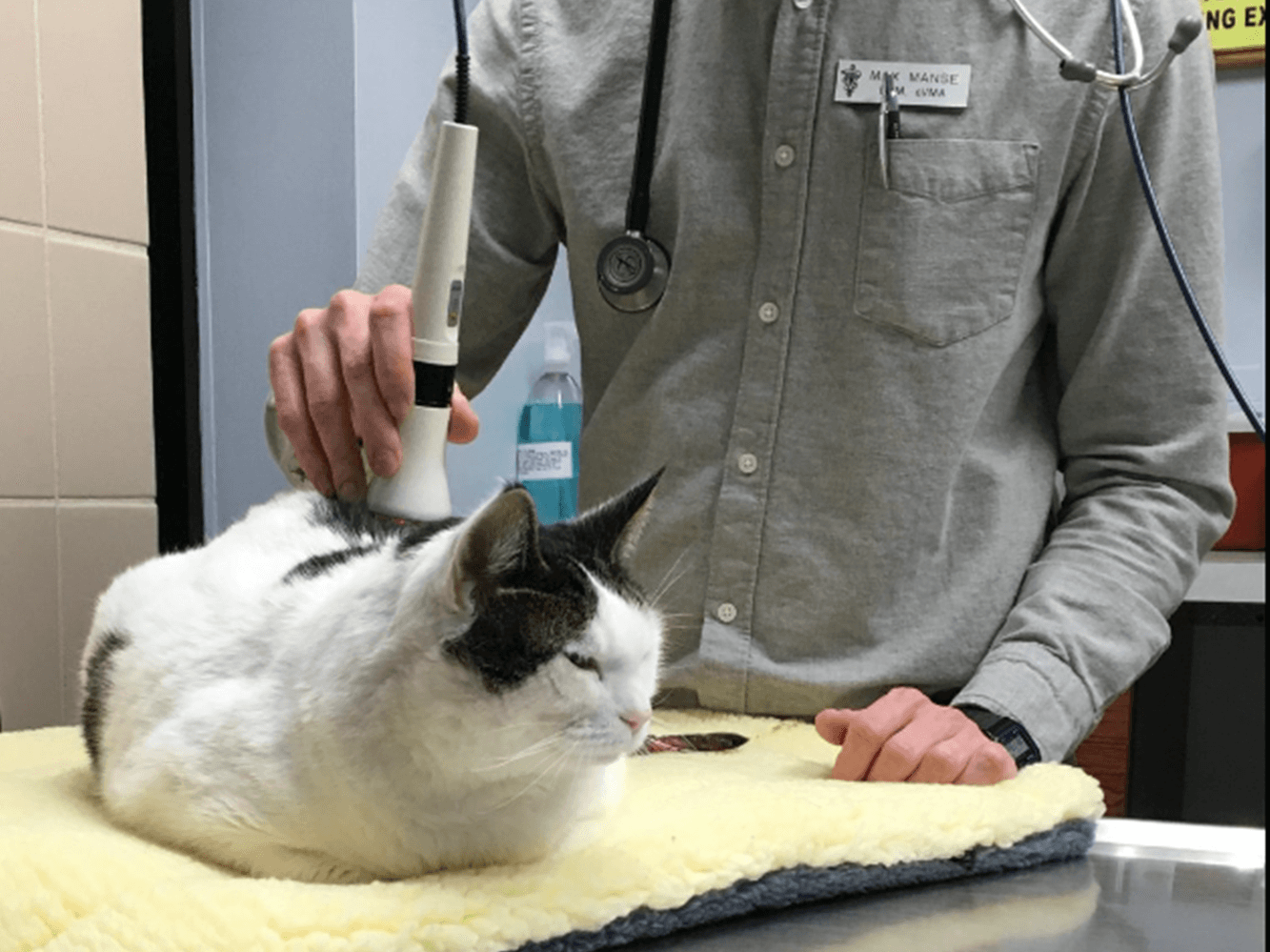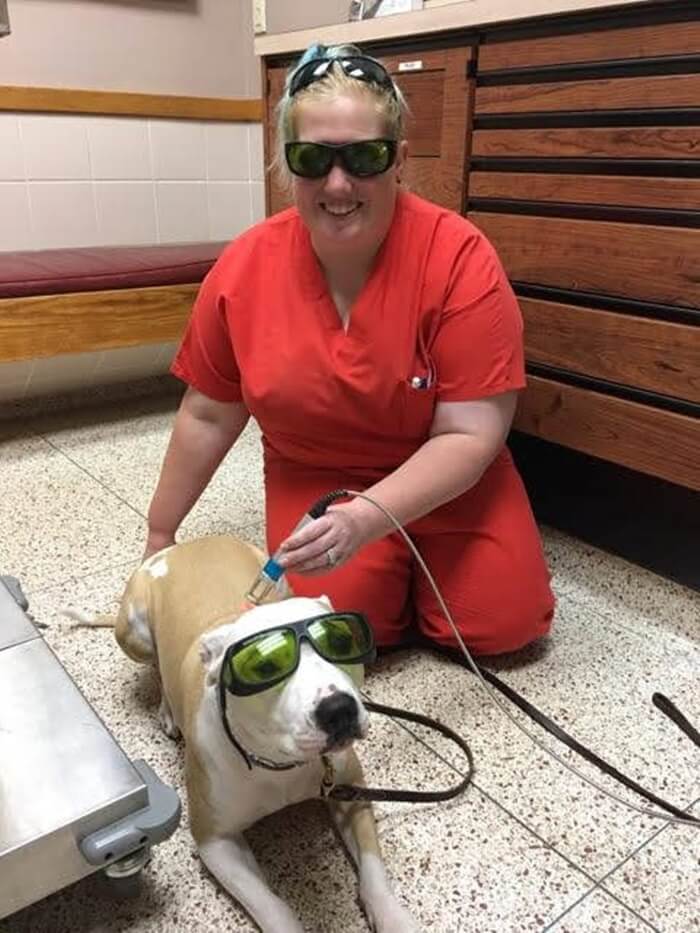Veterinary Service
Pet Laser Therapy
We are pleased to provide veterinary laser therapy, an advanced pain control solution for your pet.

Pet Laser Therapy in Andover, MA
Laser therapy for cats and dogs is an advanced therapeutic option that relieves pain and helps the healing of injuries and diseases. Pet laser therapy is a painless, non-invasive treatment option that employs a low-level laser to penetrate deep into the tissue, prompting cells to release endorphins and boost blood flow to the area.

Pet Laser Therapy
At Andover Animal Hospital, we have seen many benefits from veterinary laser therapy, including faster healing times, improved mobility, and relief from pain and discomfort. This is why we are committed to offering this innovative treatment option to our patients, ensuring that they receive the best possible care.
If you are looking for laser therapy for cats and dogs near you, look no further than Andover Animal Hospital. Our team of experienced veterinary professionals is dedicated to providing your pet with the highest level of care, using the latest and most effective treatments available. Whether your pet is dealing with a chronic condition or is recovering from an injury, we have the expertise and resources to help them heal and live their best life.
What is a therapy laser?
Therapy laser is a growing medical treatment option in human and veterinary medicine. The main principles of laser include decreasing pain and inflammation and increasing healing and tissue regeneration. It can also help to reduce edema and help control certain infections. There are two laser classes, and they go by many different names. Class 3 (or lower) or “cold” lasers produce less than 0.5 watts of power, while class 4 or “hot” lasers can produce more than that. Our laser is a class 4 laser, and this higher power allows for faster treatment sessions.
How does it work?
The easiest way to explain how laser therapy works is by comparing it to how the sun affects our bodies. When the sun’s rays hit our skin, we see visual changes (tanning). There are also invisible molecular changes, such as the conversion of vitamin D. Similarly, the laser uses different wavelengths of light (visible and non-visible) to change molecules and cell function within our bodies. As with many medications and treatments, we advise multiple sessions to achieve optimal results. For most conditions, this means 4 treatment sessions within the first 2 weeks.
What can laser therapy help treat?
The list of treatment options for the laser is extensive and includes,
- Arthritis
- Intervertebral Disk Disease
- Lameness
- Hip Dysplasia
- Tendonitis
- Open Wounds or Bites
- Inflammatory Bowel Disease
- Aar and Skin Infections
- Nose and Mouth Inflammation
- Anal Saculitis
- Cystitis
- Post Surgical Pain
- Dental Extractions
- Edema Reduction
Are there any risks?
Generally, the risks of laser are minimal. Since our laser is a class 4 laser, the higher power can cause increased heat production, which rarely can lead to thermal burns. Monitoring our patients carefully and moving the probe quickly through the treatment area avoids this complication. Laser therapy should not be used in cancer because it may further the progression of the disease. Patients and owners who are pregnant should also avoid being around the laser unit. As with all lasers, eye protection is required at all times during the operation of the laser unit to avoid retinal damage.
What to expect during your visit(s):
Before scheduling a laser appointment, you and a doctor will devise a treatment plan for your animal. Upon arrival for the work, you and your animal will be placed in a room by our designated laser technician. Both you and the technician will be required to put on the protective eyewear before beginning the treatments. Each treatment ranges from 30 seconds to 15 minutes, depending on location, type of treatment, and animal size. If an animal needs multiple locations treated, an entire treatment session can last up to an hour, but this is unlikely. It is not uncommon for an animal to be more sore the day after laser therapy, but they tend to improve significantly afterward.
It is important to note that the results may vary from patient to patient, and certain diseases may be less rewarding than others.
